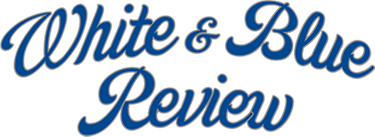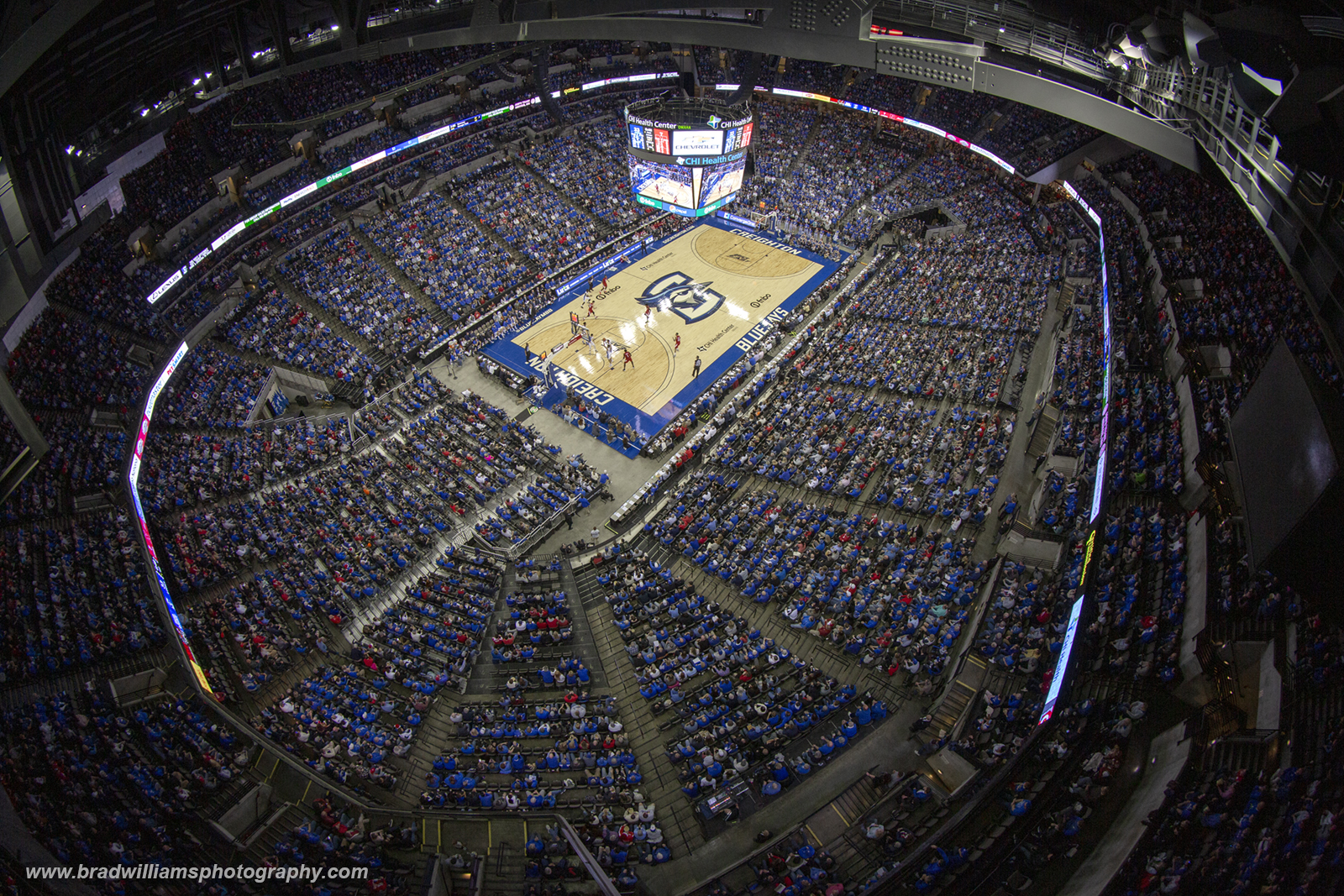Former Creighton men’s basketball assistant Preston Murphy has been issued a two-year show cause penalty, and the program has been placed on two years probation as a result of an NCAA investigation related to CU’s links to the college basketball bribery scandal, which was uncovered by the FBI in 2017.
The NCAA announced the decision in a news release from its committee on infractions Tuesday morning. The specifics of the punishment:
- Two years of probation
- A $5,000 fine plus 1% of the men’s basketball program budget
- A reduction of men’s basketball scholarships by one per year for the 2021-22 and 2022-23 academic years (self-imposed by the university)
- A reduction of men’s basketball official visits by six during the 2021-22/2022-23 rolling two-year period (self-imposed by the university)
- A reduction in the number of men’s basketball recruiting person days by 10% from the previous four-year average for the two-year probationary period (self-imposed by the university)
- The university will prohibit complimentary admission to home games for all prospects and coaches in November 2021 (self-imposed by the university)
- A two-year show-cause order for Preston Murphy. During that period, any NCAA member school employing him must restrict him from any athletically related duties unless it “shows cause” why the restrictions should not apply.
The decision likely brings an end to the NCAA’s legislative process on the case.
In the NCAA’s press release, they laid out the violation thusly:
“A former Creighton men’s basketball assistant coach (Preston Murphy) violated NCAA ethical conduct rules when he accepted a $6,000 payment from a business management company that intended to use coaches to influence student-athletes to retain the company and when he provided false or misleading information about his actions during the investigation, according to a decision released by the Division I Committee on Infractions. The Creighton athletics director also failed to report the potential violation.”
The NCAA’s ruling says that Murphy attended a July 2017 meeting in Las Vegas with an agent who was a close friend. “During that meeting,” the report states, “representatives from the management company discussed specific Creighton men’s basketball players with professional potential, as well as a “steady” flow of talent through the program.” Government audio recordings revealed that while Murphy didn’t say much in the meeting, he did accept an envelope with $6,000.
Murphy did not follow through on any specific action following the meeting, but it still violated NCAA rules because the receipt of money formalized a business relationship between the assistant coach and the management company for the purpose of using the coach for access to student-athletes.
What’s buried further down in their report is where things get very interesting.
In federal court in October 2018, the father of 2017 recruit Brian Bowen testified that Creighton may have violated NCAA rules during its recruitment of his son. The NCAA directed CU to issue a questionnaire to its men’s basketball staff. Specifically: whether staff members had accepted anything of value from an agent, financial advisor or apparel representative and whether they accepted anything of value in exchange for steering a student-athlete or a prospect toward that individual’s services.
Murphy answered “no” to both questions according to the NCAA. But he told head coach Greg McDermott about the meeting in Las Vegas, and McDermott reported it to athletic director Bruce Rasmussen.
Rasmussen, according to the NCAA’s report, then conducted his own investigation without notifying or coordinating with the school’s compliance department. He spoke with both Murphy and McDermott as part of that investigation; Murphy admitted to attending the Las Vegas meeting, but added a new wrinkle by stating that he’d given the money back to the agent after the meeting. Based on that, Rasmussen determined there had been no violation.
“He kept the information to himself until March 2019,” the report continues, “when the federal government issued a superseding indictment that specifically identified Murphy’s participation in the meeting. Only then did (Rasmussen) inform others of what he learned months earlier. As a result, the athletics director failed to meet his obligation to report a potential NCAA violation.”
The infractions committee is quoted in the release stating, “The violations largely stem from individuals permitting personal relationships to cloud their judgment and influence their decision-making. Specifically, the assistant coach prioritized loyalty to his friend, the agent associate; and the athletics director looked past alarming conduct based on his trust in the assistant coach.”
Murphy’s breach of NCAA bylaws, a Level I infraction, is the first major NCAA rules violation in any sport for Creighton. The absence of an infractions history is rare, according to the NCAA, and influenced the committee’s ruling on penalties.
All of the penalties for the men’s basketball program, with the exception of the monetary fine, are self-imposed and were apparently accepted by the NCAA as punishment enough. The end result is that after a lengthy investigation where many gleefully predicted penalties that would derail the program or perhaps cause the departure of key figures, Creighton instead got what amounts to a slap on the wrist. They’ve regularly gone with just 12 scholarship players in recent years, giving the extra scholarship to a walk-on at midseason twice in that time. The reduction in visits and in recruiting days by the staff will hurt, but is manageable. The fine and the ban on complimentary tickets for the first month of the 2021 season are negligible in the big picture.
There’s no postseason ban, and no serious sanctions of any kind for the program itself. Greg McDermott is barely mentioned in the report. Bruce Rasmussen takes the brunt of the criticism from the infractions committee, but even then it’s limited to a misplaced trust in an assistant coach more than anything. Preston Murphy takes the worst of the punishment, with what amounts to a two-year ban from collegiate coaching (on top of the three years he’s already spent in exile during the investigation). For what that investigation ultimately turned up, his punishment seems excessive — but it is in line with what has been given out in similar cases.
In a statement posted to their social media platforms, Rasmussen said “I thank the NCAA staff for their thorough investigation. We are anxious to move forward knowing that the series of reforms we have made to our policies and procedures within the Department of Athletics at Creighton ensure ongoing adherence and compliance with the NCAA’s high ethical standards.”
McDermott said in a tweet that “The thorough review of our case by the NCAA was much appreciated. Having this behind us provides an opportunity to move forward with no direct impact on our current or future student-athletes.”
Indeed, that is the biggest thing to come out of this. Creighton basketball now moves on with this in the rear-view mirror, the specter of serious punishment is no longer looming in the shadows, and no current or future players will suffer from a postseason ban for something that happened before they arrived on campus.

